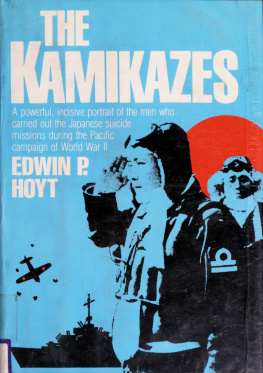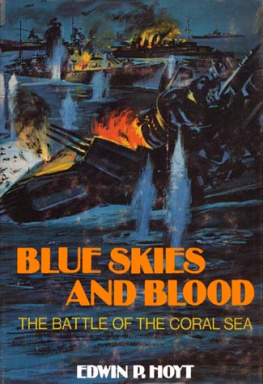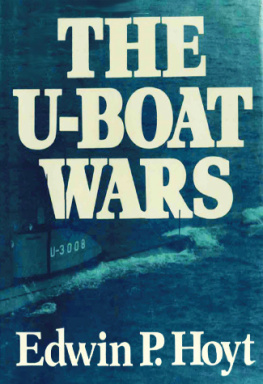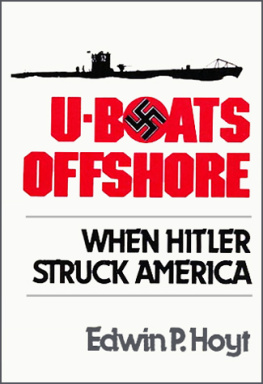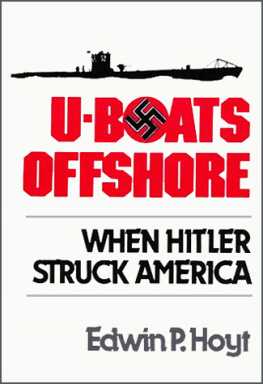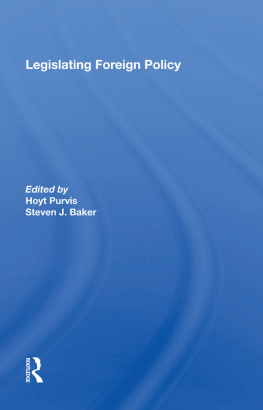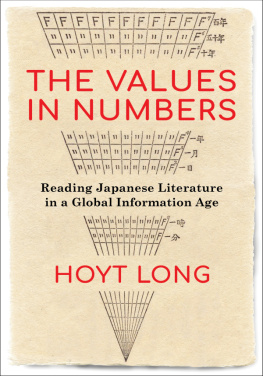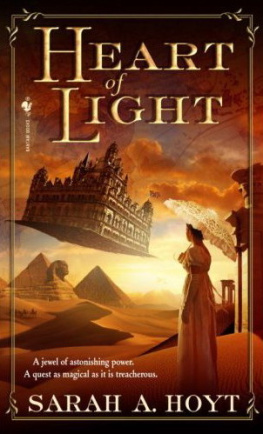Edwin P. Hoyt - Japans War: The Great Pacific Conflict
Here you can read online Edwin P. Hoyt - Japans War: The Great Pacific Conflict full text of the book (entire story) in english for free. Download pdf and epub, get meaning, cover and reviews about this ebook. year: 2001, publisher: Cooper Square Press, genre: Romance novel. Description of the work, (preface) as well as reviews are available. Best literature library LitArk.com created for fans of good reading and offers a wide selection of genres:
Romance novel
Science fiction
Adventure
Detective
Science
History
Home and family
Prose
Art
Politics
Computer
Non-fiction
Religion
Business
Children
Humor
Choose a favorite category and find really read worthwhile books. Enjoy immersion in the world of imagination, feel the emotions of the characters or learn something new for yourself, make an fascinating discovery.

- Book:Japans War: The Great Pacific Conflict
- Author:
- Publisher:Cooper Square Press
- Genre:
- Year:2001
- Rating:5 / 5
- Favourites:Add to favourites
- Your mark:
- 100
- 1
- 2
- 3
- 4
- 5
Japans War: The Great Pacific Conflict: summary, description and annotation
We offer to read an annotation, description, summary or preface (depends on what the author of the book "Japans War: The Great Pacific Conflict" wrote himself). If you haven't found the necessary information about the book — write in the comments, we will try to find it.
Japans War: The Great Pacific Conflict — read online for free the complete book (whole text) full work
Below is the text of the book, divided by pages. System saving the place of the last page read, allows you to conveniently read the book "Japans War: The Great Pacific Conflict" online for free, without having to search again every time where you left off. Put a bookmark, and you can go to the page where you finished reading at any time.
Font size:
Interval:
Bookmark:
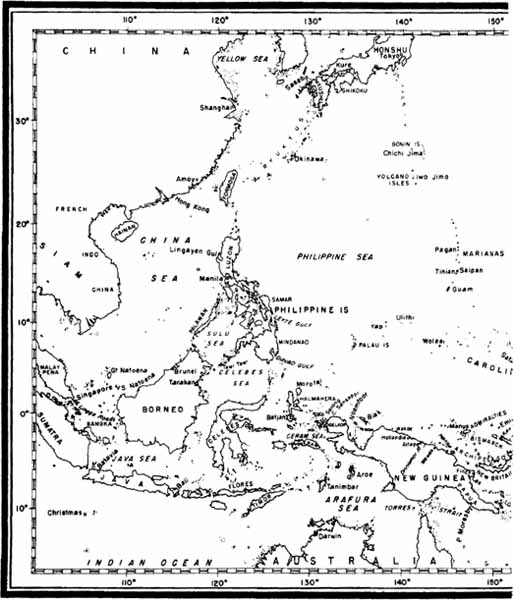
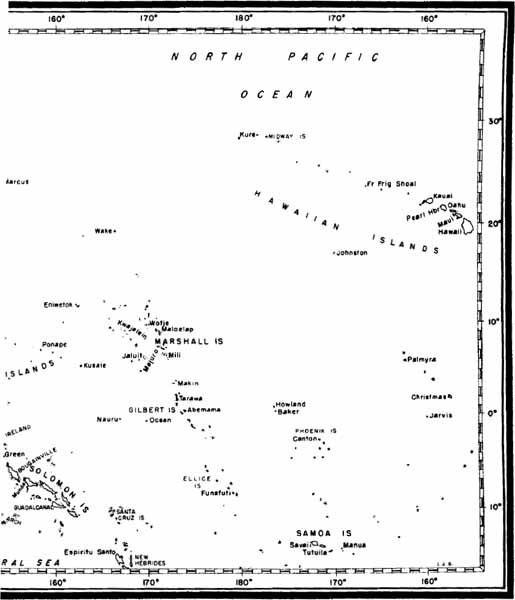
JAPANS
WAR
THE GREAT
PACIFIC
CONFLICT
WAR
THE GREAT
PACIFIC
CONFLICT
BY EDWIN P. HOYT
with a new preface

First Cooper Square Press Edition 2001
This Cooper Square Press paperback edition of Japans War is an unabridged republication of the edition first published in New York in 1986, here supplemented with a new preface. It is reprinted by arrangement with the author.
Copyright 1986 by Edwin P. Hoyt
Preface to the Cooper Square Press edition copyright 2001 by Edwin P. Hoyt
Book design by Liney Li
All rights reserved.
No part of this book may be reproduced in any form or by any electronic or mechanical means, including information storage and retrieval systems, without written permission from the publisher, except by a reviewer who may quote passages in a review.
Published by Cooper Square Press
An Imprint of the Rowman & Littlefield Publishing Group
150 Fifth Avenue, Suite 911
New York, New York 10011
Distributed by National Book Network
Library of Congress Cataloging-in-Publication Data
This book was previously cataloged by the Library of Congress as follows:
Hoyt, Edwin Palmer
Japans war.
1. World War, 19391945 Campaigns Pacific Area. 2. World War, 19391945 Japan. 3. Japan History, Military 1868 . 4. Japan Politics and government 1868 . 5. Pacific Area History. I. Title.
D767.H653 1986
940.54'26
85-24192
ISBN978-0-8154-1118-5 (pbk : alk. paper)
 The paper used in this publication meets the minimum requirements of American National Standard for Information Sciences Permanence of Paper for Printed Library Materials, ANSI/NISO 239.48-1992.
The paper used in this publication meets the minimum requirements of American National Standard for Information Sciences Permanence of Paper for Printed Library Materials, ANSI/NISO 239.48-1992.
Manufactured in the United States of America.
This book is for Arleigh Burke, who is famous in postwar Japan as the father of the Self-Defense Forces. As a professional naval officer, Admiral Burke fought the Japanese all during the Pacific War as bravely and hard as he could, and then, once victory was in hand, exhibited that compassion for which Americans are justly known and turned about to become one of the best and most effective friends in the world of the New Japan.
Much has occurred in the world since the first publication of Japans War, and since we have entered the twenty-first century, but Japan is a nation that seems to be mired in the past. The political hacks who have governed the country since Prime Minister Tanaka have offered no leadership, but neither has the opposition. The result is a political quagmire, marked by corruption and confusion, in which the Japanese people, wanting change, have rejected the half-measures of the opposition and retained the ineffectual coalition that has been in power in recent years.
A bright light seemed to appear on the horizon when Morihiro Hosokawa of the famous Konoye family became prime minister. But he proved to be a comet flitting across the landscape and has since retired to political obscurity. His great accomplishment was to initiate the debate about Japans responsibility for the Pacific War. Japan has never properly come to grips with its grisly past, and what is certain is that until this failure is addressed it will continue to hinder Japans international progress.
The ultra-nationalist mindset still exists in Japan, as exemplified by the Prime Minister and the governor of Tokyo. The Prime Minister, Yoshiro Mori, has made so many gaffes as to become a national laughingstock. He has declared Japan to be a special example of a holy state, and, although the Shinto religion was divorced from Japan by the 1947 Constitution, the Prime Minister has invoked its shadow again. Members of his own party began to call for his resignation.
By early November 2000 the Mori cabinets approval rate had fallen under fifteen percent, the lowest in post WWII history.
The governor of Tokyo, Shintaro Ishihara, has insisted on making and carrying out his own China policy, to the embarrassment of the Foreign Ministry.
Internationally, Japan is still dependent on its alliance with the United States, yet hampered by the Constitution that General Douglas MacArthur thrust upon the nation in the first months after the defeat in World War II. Economically, the surge of prosperity labeled as the economic miracle vanished in the bursting bubble of speculation and gave way to a serious and lingering recession that is just now beginning to diminish. The Japanese banking system, which once led the world, has collapsed. Japan was famous for its industrial allegiances: workers entered the work force and almost always stayed with the same company until retirement. This is no longer true. The lifetime employment dream turned out to be just another myth, and in 2000 the unemployment figures surpassed those of the past. Young people coming out of high school and college found it hard to get jobs. Many had to settle for arubaitopart-time work.
Additionally, other problems have begun to appear. Random criminality, once virtually unknown in Japan, has increased alarmingly, particularly violent crimes committed by the young. Womens place in the work force grows stronger, but they do not seem to be very happy. Ofisurediioffice ladiesoften opt against marriage, preferring their independence.
All this makes for a bewildered and bewildering Japan whose futurewhich once appeared so brightseems threatened. One thing is certain: at the dawn of the 21st century, Japan is waiting for a leader. The direction in which this unknown, potential leader will take the country remains to be seen.

Meditation on inevitable death should be performed daily. Every day when ones body and mind are at peace, one should meditate upon being ripped apart by arrows, rifles, spears, and swords, being carried away by surging waves, being thrown into the midst of a great fire, being struck by lightning, being shaken to death by a great earthquake, falling from a thousand foot cliff, dying of disease, or committing seppuku at the death of ones master. And every day without fail one should consider himself as dead.
Hagakure
(The Book of the Samurai), , Tsunetomo
Yamamoto,
Eighteenth century
A Japanese newspaperman in 1975 said it one way. One night, when he and an American confrere had put away most of a bottle of Scotch whisky and were arguing amiably over world affairs, he looked at his American friend appraisingly.
Youll never understand, he said. The trouble with you is that white skin of yours.
Yasuhiro Nakasone, prime minister of Japan, said it another way in the winter of 1984, as he probed the road that Japan was to
Note that no mention was made of the Soviet Union. Despite the USSRs position as one of two major powers in the 1980s, the Japanese prime minister treated that power almost as if it were a transitory phenomenon, not to be considered in the great scheme of world affairs. And the Japanese, in the century and a quarter since Commodore Perry opened the Pandoras box in Tokyo Bay and forced the Japanese to deal with the outside world on the Wests terms, have never lost sight of the fundamental aim of dominating their environment.
Next pageFont size:
Interval:
Bookmark:
Similar books «Japans War: The Great Pacific Conflict»
Look at similar books to Japans War: The Great Pacific Conflict. We have selected literature similar in name and meaning in the hope of providing readers with more options to find new, interesting, not yet read works.
Discussion, reviews of the book Japans War: The Great Pacific Conflict and just readers' own opinions. Leave your comments, write what you think about the work, its meaning or the main characters. Specify what exactly you liked and what you didn't like, and why you think so.

